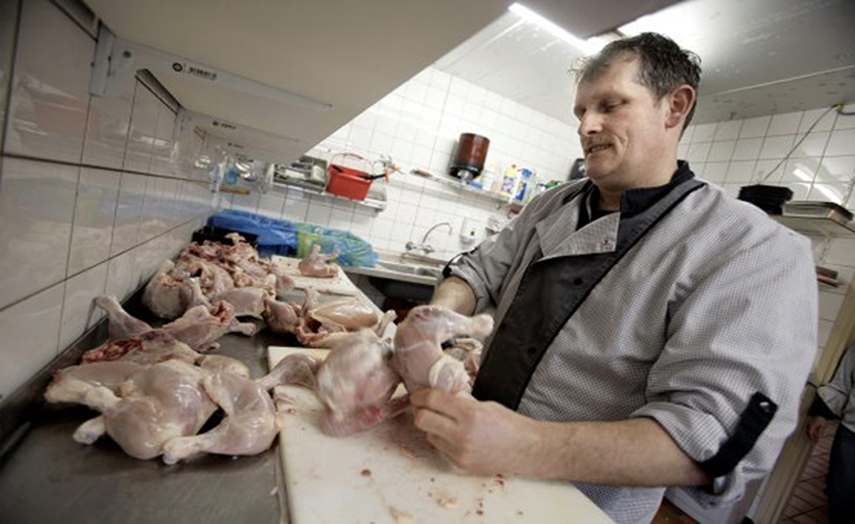More than 200 outbreaks of avian influenza across Poland over the past few months have sparked fears of a shortage of cuts imported into the UK Birtwistles, which supplies butchered poultry to hotels and restaurants across the UK, said small breast fillets used in chick burgers were down 40% as Polish supply dried up. Photo: Koos Groenewold.
In a letter to customers, Mr Eastwood wrote: “We warned our customers – we’re going to be in some challenging times over the coming weeks. I don’t want to alarm customers because we will work to fulfil orders – they just might be altered slightly. What we’re saying is there might be a depressed market for some time. The UK supply chain is ok, but demand will go up, and it’s already stretched.”
Tests to spot emerging strains of bird flu
Meanwhile, scientists at the Roslin Institute in Scotland are seeking to develop tests to spot emerging strains of bird flu which are categorized as mild but have the potential to become more dangerous. Their 3-year € 1.2m study will focus on several types of bird flu viruses that are not presently categorized alongside severe strains known to be a threat, but which are linked to recent outbreaks of infections with severe symptoms, high death rates and which pose a risk to public health.
Nearly 6 million birds have recently been culled in Poland due to avian influenza (AI), as the outbreak count breaks new records.
The team may be able to compare the impact of typically low-risk strains of flu with those that have evolved to become more harmful. They will also investigate how these viruses interact with poultry and wild birds, to better assess the potential risks from viruses that pass between the 2 groups. Experiments will test the impact of the strains on various tissues, to check for signs of severe disease that would be expected to occur in domestic or wild birds.
“Bird flu is a major challenge and concern for the poultry industry. We know that mild H5N7 strains can become very dangerous, but it is becoming clear that other mild strains are, to our surprise, becoming more virulent. It is critical that we seek to better understand the risk associated with these potentially harmful viruses,” said Professor Lonneke Vervelde from the Roslin Institute.
• The project, known as FluNuance, is funded by the International Coordination of Research on Infectious Animal Diseases (ICRAD). It will be carried out in collaboration with Royal GD Animal Health in the Netherlands, the University of Veterinary Medicine, Hannover, Germany, the National Veterinary Research Institute of Poland, and the National Food Chain Safety Office Veterinary Diagnostic Directorate in Hungary.

